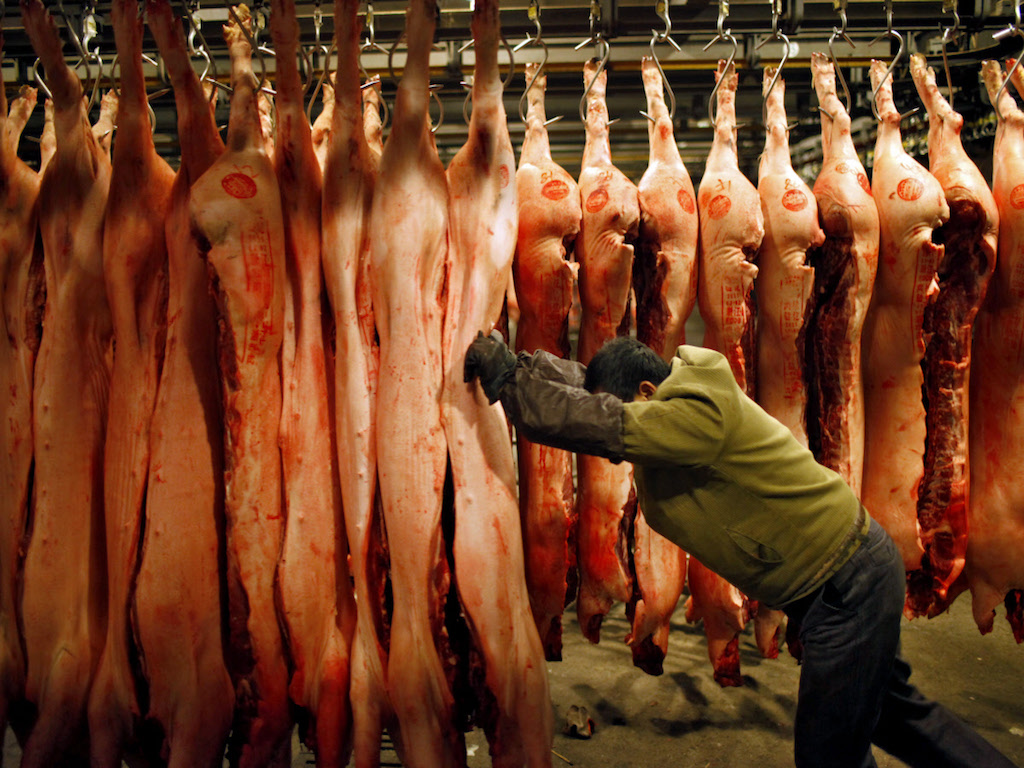4 Mins Read
While Trump’s decision to withdraw one of the biggest carbon polluters in the world from the Paris Agreement in 2017 was met with tough criticism amongst many Hong Kong residents, the small city is not exactly a role model for climate action either. Developed cities like Hong Kong are accountable for huge amounts of carbon emissions, and given our economic capacity, we should be committing to more action. Our small size does not exonerate us from climate passivity – it should in fact motivate us to lead Asia’s fight against the most urgent emergency facing our planet. One of the easiest ways we can do so is by introducing a tax on meat consumption.
Hong Kong ranks as one of the top ten cities globally on many indicators, and has impressed millions with its modern infrastructure and skyline. But the city certainly does not rank highly in terms of climate action. Under its self-determined goals submitted to the Paris Agreement, Hong Kong has promised to develop renewables to cover just 3% of the city’s power supply by 2030, much lower than the 8% outlined in Singapore’s plans.
Hong Kong has also vowed to reduce absolute carbon emissions by 26 – 36% relative to 2005 by 2030, but has done virtually nothing regarding emissions derived from the consumption of imported goods, particularly meat and dairy. In a 2018 report by the University of Hong Kong’s Earth Science department, Hong Kong ranks as the 7th highest emitter among 113 regions globally, and the majority of emissions stems from the city’s intake of imported meat and dairy.
Not only does raising animal livestock generate carbon dioxide and potent methane, with the industry accountable for 18% of global emissions (more than all transportation combined), it also fuels inefficient land management – a problem that the United Nations’ IPCC body has repeatedly highlighted as a threat to humanity. Hong Kong’s demand for beef, in particular, which is predominantly sourced from Brazil, directly ties our city to ongoing deforestation of the Amazon rainforest, one of the few carbon absorbing tools we have left on earth to fight global warming.
Shockingly, Hong Kong is the top receiver of Brazilian beef imports worldwide, ahead of China, the European Union and the United States, according to data provided by Brazil’s Secretariat of Foreign Trade (SECEX). If Hong Kong reduced its beef intake, it would significantly lower demand for Brazilian farmers to set fire to clear forests for cattle ranching and soy feed cultivation.
Hong Kong’s appetite for meat is also a cause of the city’s hefty water footprint, a precious resource that is increasingly strained due to climate change. In data provided by the UN Food and Agriculture Organisation (FAO), the average Hong Konger eats through a whopping 102.7kg of pork, beef, poultry and other meat annually, higher than that of Europe and the United States.
Animal agriculture requires a massive amount of water: one beef burger requires 660 gallons of water to produce, and just one pound of chicken uses up 71% more water than the same amount of soy.
In a study on Hong Kong and China’s water risk by the European Commission’s Joint Research Centre, Hong Kong was labelled as one of the biggest per capita users of freshwater in the entire Asian region, and could slash water wastage by 40% if diets were less meat heavy.
Davy Vanham, the lead author of the study, told the SCMP last year that the “food consumption behaviour of Hong Kong is very different from that of the average mainland Chinese. Hong Kong people live in a heavily urbanised environment…[they] eat more Western diets, which contain more meat, livestock products, fats, fish, sugar and processed foods.”
Reducing meat consumption would be a boon for our health too. In 2015, Hong Kong’s Centre for Food Safety published a risk assessment report on the consumption of red and processed meats. The report, in line with the World Health Organisation’s (WHO) evaluation that processed and red meat was “probably carcinogenic” to humans, advised the Hong Kong public to switch to a more balanced diet with more fruits, vegetables and less salt and red meat.
With Asia’s climate action looking bleak, this is Hong Kong’s chance to become a regional leader and galvanise more climate change action. One of the key ways Hong Kong could lead a sustainable development model is to introduce a meat tax. While this might seem like a radical idea, meat levies have already been discussed in Germany, Denmark and Sweden, as pointed out by an analysis by the Farm Animal Investment Risk and Return Initiative (FAIRR).
Not only would a meat levy help ease health epidemics like obesity and cancer, it would also help slash Hong Kong’s meat consumption-driven greenhouse gas emissions. It could even tackle the related issue of livestock epidemics like avian flu and the current African swine fever that is wiping out pigs in China.
Long story short, our current levels of meat consumption are unsustainable. As the health and economic costs associated with climate change events will continue to rise, taxing meat is one of the most effective ways Hong Kong can lead Asia to action.
This article is a part of Green Queen’s collaboration in the Covering Climate Now project, a week-long initiative to raise global awareness of our planet’s climate emergency.
Lead image courtesy of Qilai Shen / Climate Visuals.




